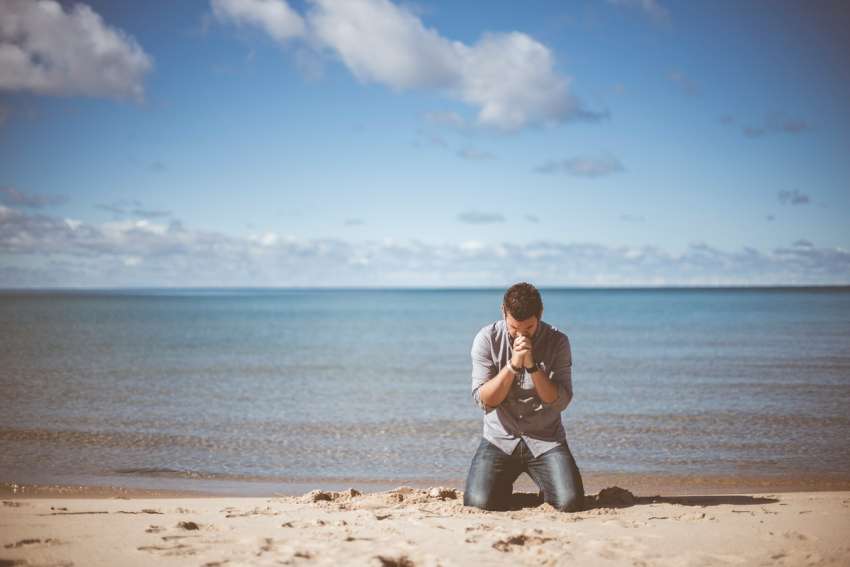Blessed are the meek? In her experience of a rough childhood amongst a suffering people, mired in poverty and violence, there seemed no blessing except in being strong, self-reliant and rebellious. Survivors were blessed; meekness seemed more like weakness, cowardice and ultimately, destruction.
Because she loved Jesus and the Church, she didn’t reject this teaching, but set out to discover its meaning. What could it possibly signify to call the meek “blessed”?
We humans are a quarrelsome and ungovernable lot. It is difficult to find a time in human history unmarked by the suffering people inflict in their efforts to dominate and subjugate each other. What is it we have against each other? What makes it so difficult for us to get along? Why can’t we find the way of peace (Psalm 14:3)?
The real source of chaos and disharmony is not so much between us but between ourselves and God. The tendency to refuse God and disdain His ways, the distance and distrust we prefer to put between ourselves and Him, is our experience of the corruption that infects us all. Theological terms like “the fallen order” and “Original Sin” reflect the inescapable barrier between humanity as it exists in the world and its own intended peace and fulfillment in God. Once we realize the problem and try to escape it, we find out the depth of our predicament and our powerlessness in the face of it. Like St. Paul (Romans 7:24), we ask: Who shall deliver us?
But we can discover how blessed we are to take refuge in the liturgy, the shared life of prayer. Here we enter into the “dialogue between God in His glory and humanity in its present pain and affliction.” We are like the people of Galilee and Gennesaret in the Gospels, running to Jesus with their pains and illnesses. Wherever He goes, they run ahead of Him, bringing people to the marketplace where He might soon pass, crowding the door of whichever house He is in. How would you and I respond if everyone in the neighbourhood started bringing us every possible human ailment, leaving their beloved suffering ones at our feet?
Jesus responds with meekness. He brings humanity into dialogue with God, meeting the suffering people with gentleness and healing. The evangelists record no instance of His turning anyone away or complaining that they’ve come. The disciples complain sometimes as they learn from Him what gentleness and meekness are. They learn that when He does withdraw from the people, His purpose is to pray. Out of His deep life of prayer, Jesus is meek with the people but forceful with their ailments and whatever works against their relationship with God.
Why are the meek blessed? Why will they inherit, not just their own land, not the mystical Kingdom of Heaven, but the whole round Earth? They receive the gift originally given to Adam and rejected by him: the gift of God’s lordship and their own humanness. In their submission to God they aren’t passive or spineless, but imitate Jesus’ meekness. They care for the well-being of those they meet, caring in the way their Creator himself does. “Meek” doesn’t mean weak, stupid, unaware or lazy. Meekness is a way of being, deliberately chosen and cultivated. It takes responsibility. It calls for strength and vulnerability, even in face of aggression.
“Today I set before you life or death, blessing or curse. Choose life, then” (Deuteronomy 30:19).
Could it be that the meek are blessed because they have chosen? They have exercised, not so much the “right to choose,” but the requirement to choose. To choose for God and His care for humanity. To choose against the lonely human arrogance that keeps us apart from each other, from God, and from the earth God gave to us. The meek hear the urgency of the choice and respond decisively.
Like the woman I knew, who despite fearing meekness would lead her back into oppression, meekly chose to hear the Scripture and let it change her. She didn’t lose her strength, resilience or vulnerability. She did gain a new way of inhabiting the Earth.
(Marrocco can be reached at mary.marrocco@outlook.com.)

